Defendants in stabbing of Iran International presenter face court
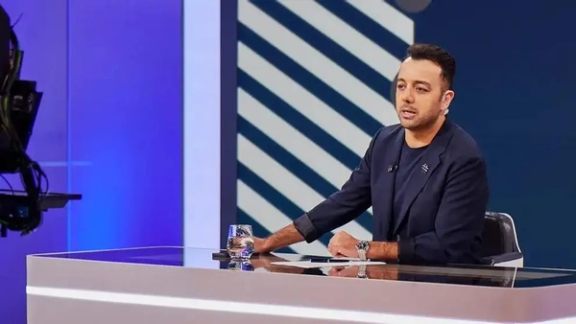
Two men accused of stabbing an Iran International TV presenter appeared in court on Wednesday in London, a day after being extradited from their native Romania.

Two men accused of stabbing an Iran International TV presenter appeared in court on Wednesday in London, a day after being extradited from their native Romania.
The defendants, Nandito Badea, 19, and George Stana, 23, were arrested in Romania earlier this month at the request of British authorities.
They will appear at the Central Criminal Court of England and Wales on January 17, when their trial will officially begin. The defendants are charged with causing grievous bodily harm with intent.
Pouria Zeraati, a British-Iranian national, was attacked near his home in Wimbledon, southwest London, in March and was hospitalized with injuries to the leg. The incident raised concerns about threats to critics of the Iranian government, with British authorities investigating whether Zeraati was targeted due to his work.
Iran has denied any involvement in the attack.
Acting Commander Helen Flanagan from the Met’s Counter Terrorism Command emphasized the importance of the investigation and thanked Romanian authorities for their cooperation. She urged the public not to speculate on the case in order to allow the legal process to unfold.
“I would like to thank our Romanian counterparts for their cooperation on this matter, as well as colleagues from the CPS and NCA who have helped us to reach this point,” she said.
“Now that criminal proceedings are fully active here in the UK, I continue to ask people not to speculate about the case or motivation so that the criminal justice process can ran its course.”
Adam Baillie, a spokesperson for Iran International, previously welcomed the progress of the investigation, noting that the developments were reassuring for journalists facing similar threats.
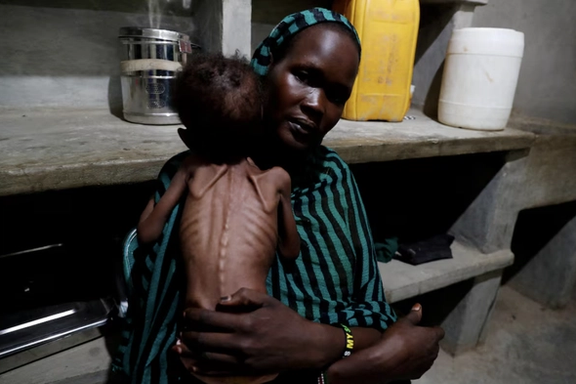
Iran is backing Sudanese army forces with weapons and drones in a grueling civil war, according to a Bloomberg report, and Tehran along with Russia is seeking military bases in Port Sudan on the Red Sea.
Iran has delivered arms to Sudanese army forces and provided them with dozens of drones, the news outlet reported, helping tip the conflict against militia opponents.
Russia, which has provided fuel and weapons components, along with Iran have both been in talks with Sudan's generals on building military bases astride the Red Sea, Bloomberg reported citing Sudanese and Western officials.
The support puts Tehran and Moscow on the winning side of the war, in contrast to their epochal setback in Syria where their mutual ally Bashar al-Assad was toppled this month by rebels they had been fighting for years.
Iran re-established diplomatic ties with Sudan in late 2023 after a seven-year deep freeze after Khartoum joined a Saudi-led military intervention in Yemen against Tehran's allies in the armed Houthi movement.
Militias fighting the army felled a domestically crafted drone made with Iranian parts, Bloomberg reported citing Wim Zwijnenburg, a researcher at Dutch pro-peace organization PAX.
Zwijnenburg located an Iranian military drone on an air strip outside the capital earlier this year, Bloomberg wrote.
It cited the Conflict Observatory monitor saying at least seven flights operated by Qeshm Fars Air traveled between Tehran and Port Sudan in the first half of the year.
The firm, which is under US sanctions, is affiliated with the external operations arm of the Islamic Revolutionary Guard Corps (IRGC).
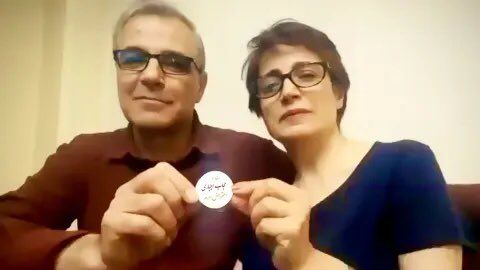
The European Criminal Bar Association (ECBA) has issued an urgent request for international intervention on behalf of Iranian human rights activist Reza Khandan, the husband of prominent human rights lawyer Nasrin Sotoudeh.
Khandan was arrested on Friday after Iranian security forces raided his home. His daughter, Mehraveh Khandan, revealed in an Instagram post that her father was detained at his residence. The reason for his arrest has not been disclosed.
In its statement, the ECBA said Wednesday, “We call for an end to the judicial harassment of Reza Khandan and Nasrin Sotoudeh, in line with the UN Declaration on Human Rights Defenders and the UN Basic Principles on the Role of Lawyers.”
Khandan has been arrested in the past for his activism and his support of his wife’s campaign against Iran’s mandatory hijab laws.
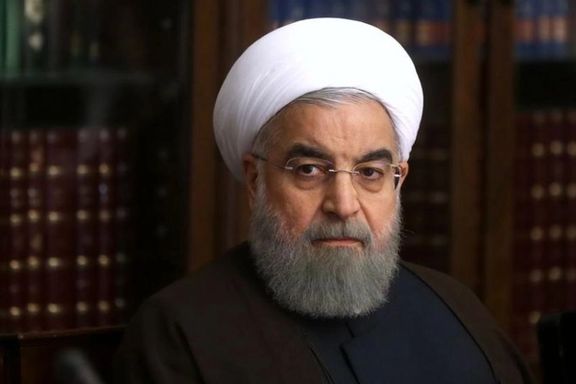
Former Iranian President Hassan Rouhani has criticized the newly approved hijab law, saying that it "aligns neither with the Constitution, nor with justice, nor with the Quran and Islamic culture."
"The Quran regards hijab as a means to ensure the safety of women, but unfortunately, some people view the issue of hijab as a tool for coercion," Rouhani said on Wednesday.
This comes as the Islamic Republic has officially postponed the implementation of the controversial hijab law, which imposes severe penalties on women and girls who defy veiling requirements, following significant backlash from both the public and the international community.
Iran's Supreme National Security Council, in a letter to the parliament on Saturday, requested that the process of implementing the Hijab and Chastity law be halted. A member of the Parliament's presiding board stated that the government intends to submit an amended bill to the parliament for further consideration.
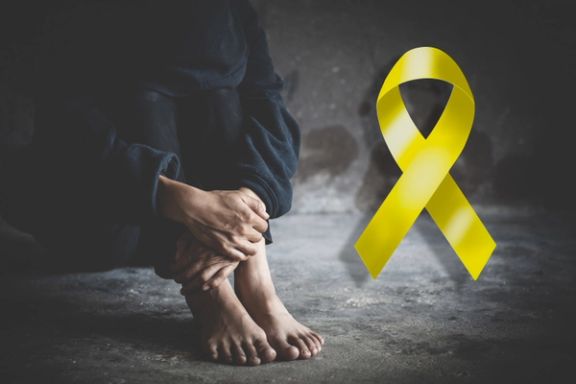
Severe humiliation and abuse in schools are driving Iranian students to contemplate or attempt suicide, interviews conducted by Iran International reveal.
These firsthand accounts highlight the harsh conditions within the educational system under the Islamic Republic, where strict dress codes and conduct rules are strictly enforced. Students face extreme consequences for rule violations, often resulting in severe mental health struggles.
A survey referenced by the domestic Shargh media outlet in March, which included 46,000 students, revealed alarming figures: half of the students reported experiencing depression, 18% had attempted suicide, and 21% had contemplated suicide.
Since 2021, the Iranian Legal Medicine Organization has ceased publishing detailed suicide data, including age, gender, and dates, making it more challenging to assess the full scope of the crisis.
As of November, however, at least 31 school students in the country had attempted suicide over the previous eight months, with 26 fatalities, according to the HRANA rights group. Factors such as poverty, enforced hijab, forced marriage, and family conflicts have been cited as contributors to these attempts.
Iran’s teachers’ union recently stated that the latest suicide of a female student was part of a "harrowing cycle deeply rooted in flawed policies, systemic pressures within the education sector, ideological impositions, and the disregard of authorities for the growing mental health crisis in schools."
Amid this crisis, accounts by students, parents, and teachers shared with Iran International offer a glimpse into the emotional and psychological toll on teenagers in a school system that fails to support their well-being.
For security reasons, interviewees were provided pseudonyms, and all interviews with children were conducted with the consent of their parents or in their presence, ensuring that ethical and legal guidelines were followed.
According to several young female students, male school principals were often identified as the primary figures responsible for humiliating them, leaving them in severe emotional distress.
A 15-year-old girl shared how her principal’s violent behavior left her deeply traumatized.
“In the schoolyard, the principal shouted behind me, ‘How dare you come to school dressed like this? What do you think this is, Shahre-e-No?’” she said, referring to the red-light district that existed before the Islamic Revolution.
The principal berated her for her highlighted hair and manicured nails before physically pushing her. “Sit down! I’ll call your father and sort this out,” the principal said.
Her father described the aftermath: “The principal expelled my daughter and declared, ‘Shave her head completely!’”
In another case, a 16-year-old girl in Sanandaj, Kurdistan Province, shared how her school principal insulted her for shaping her eyebrows with her family’s permission.
“So, where’s your husband, then?” the principal taunted. After being slapped in front of classmates for complaining about the treatment, the girl contemplated suicide the same day. “If your parents cannot raise you properly, I will make you behave,” the principal told her.
In a northern Iranian city, a 14-year-old student was humiliated and shamed for wearing rainbow-colored trainers.
The principal forced her to remove her shoes in front of classmates and barred her from attending a class.
The child’s mother recalled the child’s distress, saying: “She broke down in tears and told me, ‘Mom, I want to die.’”
Systemic shortcomings in mental health support
The crisis is amplified by the severe shortage of mental health resources in Iranian schools, where students, already subjected to humiliation and abuse by staff, have no access to the support they need to recover from these often traumatic experiences.
Iran’s comprehensive counseling guidelines recommend having one counselor for every 12 students. However, the country’s schools currently employ only 13,000 counselors, leaving a significant gap of 37,000 professionals needed to meet this standard.
A psychotherapist in Tehran reported an increase in cases of children he had seen, contemplating suicide over the past year – with many experiencing depression due to abusive treatment in schools, including bullying by classmates or staff.
He noted that the severe shortage of counselors leaves many students without the support they desperately need.
“Not all families can afford the $60 to $90 per session for counseling. Iran lacks the infrastructure for suicide-related services,” he said. “Religious views and a lack of expertise mean this critical issue is either ignored or treated as a security matter.”
In contrast, other countries provide more robust support.
In neighbouring Turkey, psychological counseling and guidance services are available in many schools under laws aimed at safeguarding mental health, with some reports indicating these services are free of charge. Schools also contact families or relevant organizations when necessary.
The United Kingdom also mandates suicide prevention training for teachers, who are required to refer at-risk students to specialists. Support plans are created, and confidentiality is maintained unless the child’s life is at risk.
Hamed, a teacher in Tehran, believes the education system under the Islamic Republic is fundamentally broken.
“When the Supreme Leader of the Islamic Republic prevented the implementation of UNESCO’s 2030 Agenda, it was essentially a war on the minds and souls of the nation’s children,” he said.
The agenda’s goals include equal educational opportunities for girls, which were replaced with a national document prioritizing devout religious upbringing.
Hamed recounted the case of a student who attempted suicide two years ago after clerics at the school made inappropriate remarks about his family. Instead of addressing the issue, the school threatened the family, warning that speaking out would result in the student’s expulsion. Faced with this pressure, he said, the family decided to homeschool their child.
In addition to these pressures on students, experts have long noted the significant decline of Iran’s public education system under the Islamic Republic. Challenges such as reduced investments, increasing clerical control, and widening socioeconomic disparities have weakened the system.
Mass dropouts, declining academic performance, and the growing presence of clerics and Basij members—a paramilitary force under the IRGC tasked with enforcing ideological conformity—have further compounded the crisis, shifting the focus from education to ideological indoctrination.
Maryam, a teacher’s rights activist, said today’s educational atmosphere resembles the restrictive environment of the 1980s.
“Suicide is stigmatized in schools due to religious beliefs, and cultural factors also play a role. Society needs education on how to address this issue,” she said.
Another teacher activist stressed the need for widespread education on preventing suicide.
“These measures require funding, but neither the Ministry of Education, the Ministry of Health, nor the government is willing to invest,” he said. “The children of this land must enjoy mental health support to face future challenges. In Iran, however, it is considered either a luxury or a security matter.”
Although the “Student Social Care System” (NAMAD) was launched in the 2010s to address such issues, the program has been effectively abandoned, leaving students without adequate support.
Activists and educators warn that without urgent action, the mental health crisis among Iran’s youth will only deepen.
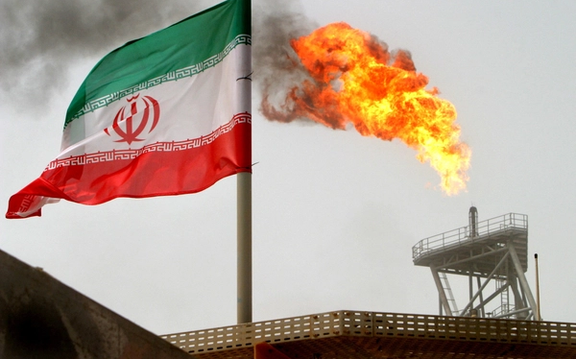
Iran's Revolutionary Guards have tightened control over the country's oil industry and now manage up to half of exports, funding its military capabilities and those of armed allies across the Middle East according to a Reuters report.
Western officials, security experts, and Iranian trading sources cited by the news agency said the Islamic Revolutionary Guard Corps (IRGC) now control up to half of the country's oil exports, up from around just a fifth three years ago.
The Islamic Republic, despite harsh sanctions by the United States and its allies, generates more than $50 billion a year in oil revenue - a key lifeline for foreign currency.
Iran's entire oil industry has now fallen under the sway of the Revolutionary Guards, Reuters reported citing over a dozen interviewees, including the ships covertly transporting sanctioned crude to logistics and front companies facilitating oil sales.
China is Iran's top customer and China Haokun Energy, a front company operated by former Chinese military officials, remains an active conduit for the sales despite being slapped with US sanctions last year.
The sources, who requested anonymity due to the sensitivity of the topic, shared insights derived from intelligence documents and tracking ships linked to the IRGC.
Last week, Iran International reported that the Revolutionary Guards are attempting to sell oil stored in China ahead of tougher sanctions expected under US President-elect Donald Trump, according to an informed source.
The source, speaking on condition of anonymity, said that Iranian authorities have instructed the IRGC to sell the sanctioned oil stored at Dalian Port in northeast China through intermediary firms.
The IRGC’s increasing dominance in the oil sector strengthens its overall influence across Iran's economy and complicates the effectiveness of Western sanctions, as the organization is already designated as a terrorist group by the United States and its allies.
According to Iran’s national budget, at least $12.6 billion from oil exports is allocated to the IRGC. This revenue enables the group to sell oil primarily to Chinese buyers and fund its military capabilities and allied militias in the Middle East.
Iran circumvents US and allied sanctions by rebranding its oil, often using tankers from a dark or shadow fleet operating in Malaysian and Singaporean waters.
These tankers relabel Iranian oil as originating from Iraq, the UAE, Oman, or Malaysia, after which it is delivered to China's smaller independent refineries, known as teapots.
While Shandong Port in China remains the primary hub for this rebranded oil, tanker-tracking data shows a notable increase in shipments to Dalian Port this year.
In response, the US Treasury Department recently blacklisted 45 tankers involved in transporting Iranian oil to Shandong. Despite these measures, over 100 large vessels in the dark fleet remain unsanctioned, according to data from Vortexa, continuing to transport Iranian oil to China, albeit at reduced volumes.